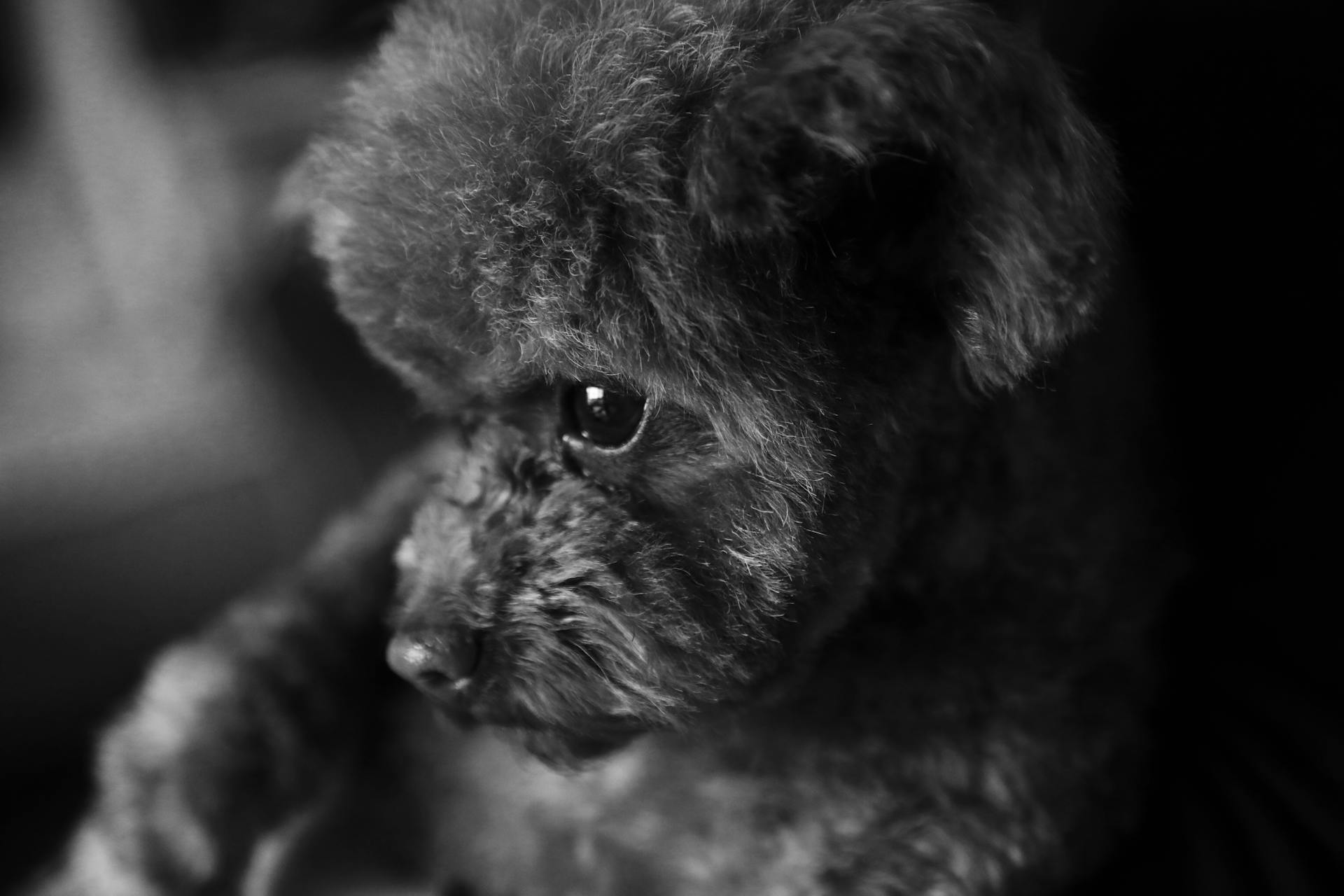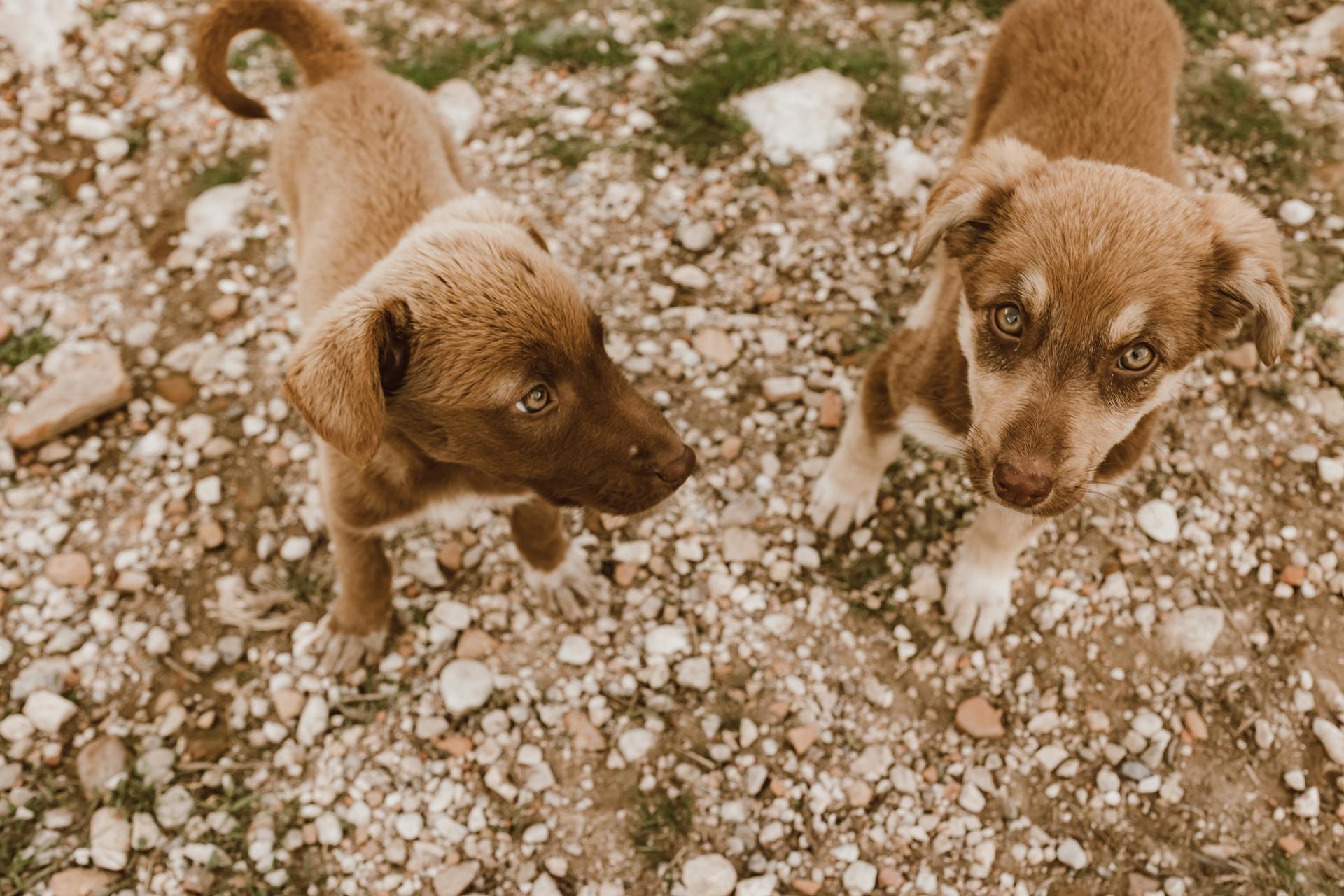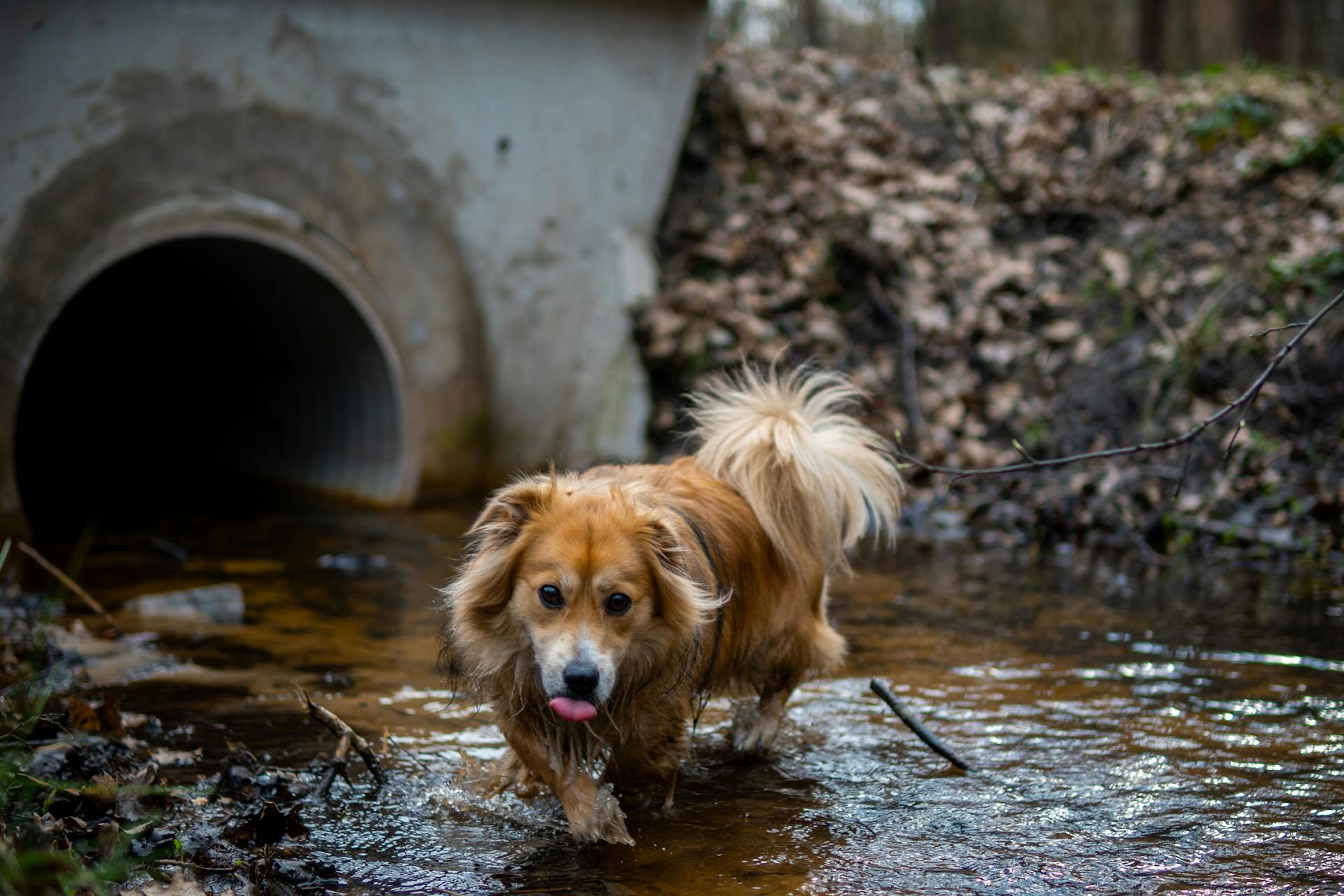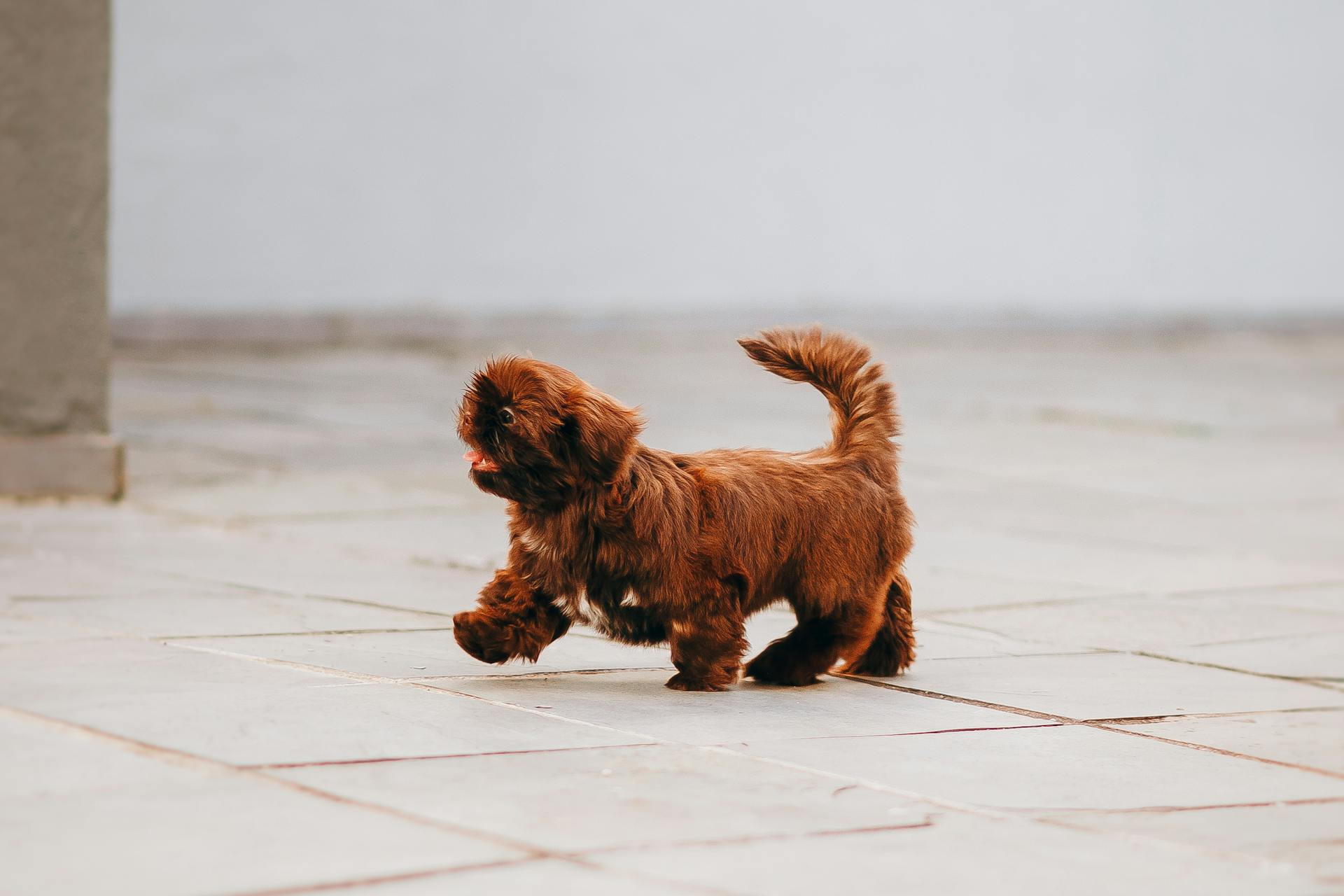
The Peekapoo is a delightful crossbreed that's sure to capture your heart. They're a mix of Pekingese and Poodle, resulting in a small, affectionate companion.
Peekapoos are known for their gentle nature, making them an excellent choice for families with children. They're also relatively low-maintenance when it comes to grooming.
One of the standout characteristics of Peekapoos is their intelligence. They're highly trainable, which means they can learn a wide range of commands and behaviors with ease.
Physical Characteristics
The Peekapoo is a small dog that can grow up to 11 inches in height. They can weigh anywhere between 4 and 20 pounds, with some weighing as little as 4 pounds.
Their coats are a key part of their physical characteristics, and they can come in a wide range of colors including silver, grey, white, sable, red, cream, apricot, chocolate, buff, and black.
A Peekapoo's coat is usually soft in texture and has an almost cottony feel, making it perfect for cuddling. It's also hypoallergenic, which is great for owners with allergies.
Size and Physical Development
The Peekapoo is a small dog, reaching up to 11 inches in height. They can weigh anywhere between 4 to 20 pounds, depending on the size of their parents.
Some Peekapoos are considered Miniature Peekapoos if they weigh less than 8 pounds at an adult weight. Their petite size makes them a great companion for owners who live in small spaces.
As the Peekapoo matures, monitoring their growth is key to their overall health. Understanding their average size and physical development helps owners provide the right care at every stage.
Their coat can range in length from medium to long, and requires regular grooming to stay healthy and free of tangles. Daily brushing is recommended for Peekapoos with longer coats.
Eye
When it comes to the eye health of Peekapoos, it's essential to be vigilant for signs of dryness or injury due to their brachycephalic facial structure.
The Peekapoo's brachycephalic breed predisposes them to certain eye conditions, making consistent ophthalmological assessments crucial for their care.
Monitoring your Peekapoo's vision and ocular comfort is key, and you should seek professional advice if you notice any changes.
Temperament & Intelligence
The Peekapoo's temperament is a unique blend of their Poodle and Pekingese parent breeds. They are intelligent, affectionate, and loyal dogs who love spending time with their people.
Peekapoos are happiest curled up in their owner's lap, but they can be aloof with strangers and make excellent watchdogs due to their tendency to bark when someone approaches.
Social isolation can be challenging for Peekapoos, and they may suffer from separation anxiety if left alone for too long. Consistent positive reinforcement training is essential to help them learn basic commands and provide mental stimulation.
Early socialization is crucial for Peekapoos, as they can be naturally suspicious of strangers and new dogs. Without proper socialization, they may become slightly aggressive or timid.
Peekapoos are generally low-energy dogs who prefer to nap on the sofa rather than engage in high-energy activities. They get along well with other laid-back pets, but may not be the best choice for homes with small children due to their small size and tendency to get underfoot.
Check this out: Teacup Peekapoo Dogs
Here are some key points to keep in mind when considering a Peekapoo's temperament:
- Devotion and loyalty
- Cheerful disposition with a healthy dose of playful behavior
- Need for early socialization to prevent shyness and promote confidence
- Tendency toward vocalization, requiring patient and positive training for control
- Independence that may challenge training efforts without consistent guidance
Living Needs
The Peekapoo is a lapdog at heart, requiring minimal exercise needs - a quick walk around the block is usually enough to tire them out.
They'll do best in a home where their owners are around most of the time, as they crave companionship. Apartment living is fine, but they do have a tendency to bark, which could annoy the neighbors.
Peekapoos get along well with other animals, including cats and other dogs, but they prefer to be the center of attention. They're best suited to homes with older children.
They have a tendency to bark, but with proper training and socialization, they can learn to live with other animals and not be so suspicious around new people.
Daily Life
Living with a Peekapoo is a delightful experience, but it's essential to understand their daily needs to ensure you provide the best possible life for your furry friend.
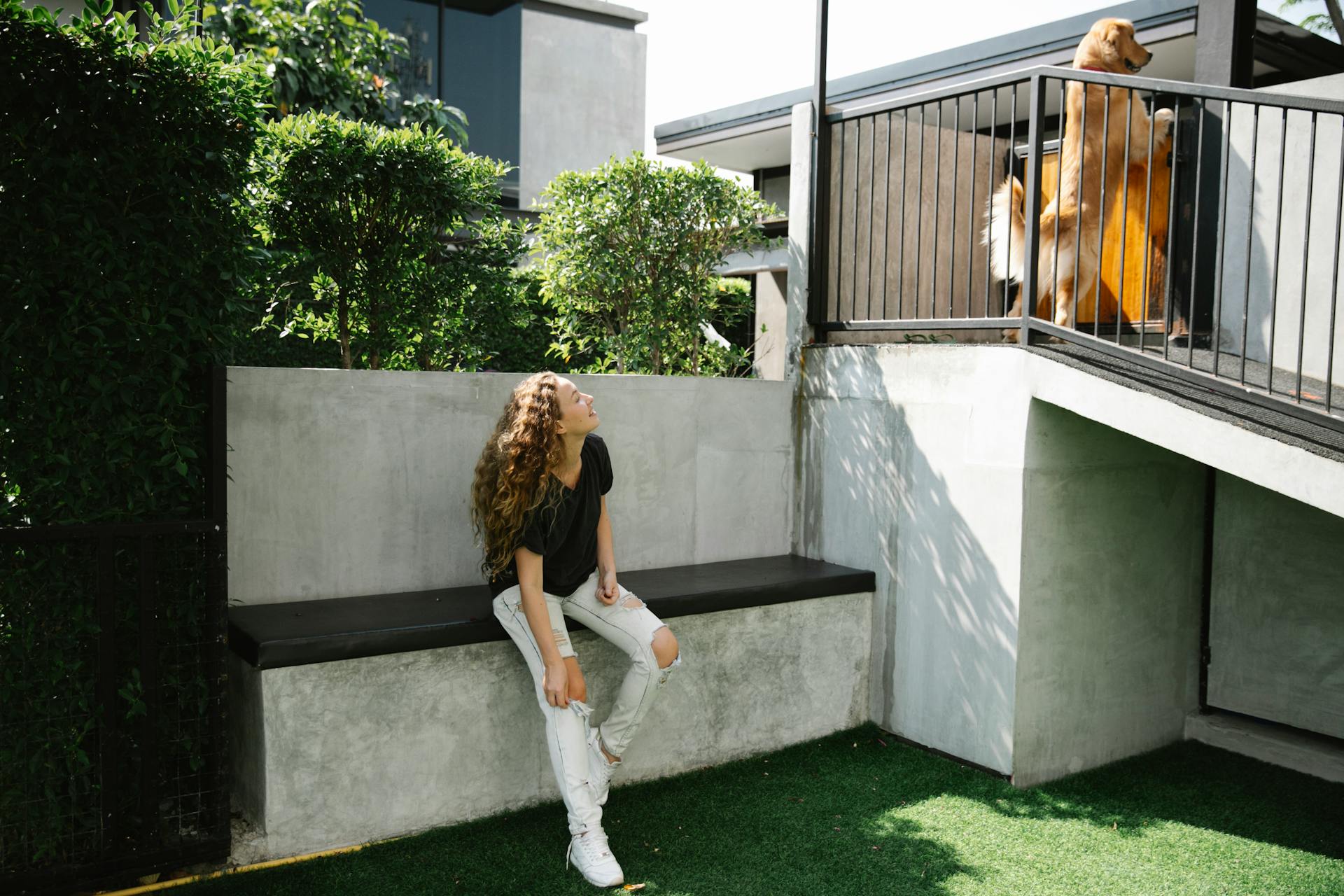
Peekapoos are lapdogs at heart and require minimal exercise, a quick walk around the block is usually enough to tire them out. They'll happily curl up on the couch with you afterward.
In fact, Peekapoos prefer to be the center of attention, so they'll thrive in homes where their owners are around most of the time. Apartment living is fine, but they may bark, so it's essential to consider your neighbors.
To ensure your Peekapoo's well-being, provide a balanced routine of physical and mental activities, including short walks and playtime. Mental stimulation is key, so adjust the exercise routine according to their energy level.
Here's a breakdown of Peekapoos' daily needs:
Remember, proper grooming practices, such as ear cleaning and hygiene essentials, profoundly affect the general health and comfort of your Peekapoo.
Puppies
Socialization is key when it comes to raising a well-adjusted puppy. By introducing your puppy to various people and animals at a young age, you'll help them become less wary of strangers as adults.
To avoid nipping behaviors, teaching your puppy proper manners is crucial. This includes showing them what's acceptable and what's not, especially during playtime.
A Peekapoo puppy needs regular exercise and playtime to grow into a healthy and happy dog. This includes taking them on walks and engaging in play with your pup.
Grooming is an essential part of caring for your Peekapoo puppy. They'll need regular grooming sessions to keep their coat looking its best.
Care and Health
To keep your Peekapoo happy and healthy, regular grooming is a must. A Peekapoo's low-shedding, hypoallergenic coat requires regular brushing, with dogs with longer coats needing to be brushed every day and those with short coats or stylish haircuts needing to be brushed weekly.
A Peekapoo's exercise needs are relatively low-maintenance, but it's essential to provide mental stimulation through exploration and play. In hot weather, it's crucial to prevent overheating, which can be a risk for brachycephalic breeds like the Peekapoo.
To maintain your Peekapoo's overall health, regular nail trims and dental care are necessary. A Peekapoo can adapt to any type of dwelling, including apartments, but they do much better with a small fenced yard to access.
By following these care and health guidelines, you can ensure your Peekapoo remains happy, healthy, and well-groomed.
Care
A Peekapoo's coat requires regular brushing, with daily brushing for dogs with longer coats and weekly brushing for those with short coats. This will help prevent matting and keep their coat healthy.
To prevent overheating, it's essential to provide your Peekapoo with plenty of mental stimulation, especially in hot weather. This can be done through puzzle feeders, interactive toys, and training games.
Daily exercise is crucial for a Peekapoo's overall health and happiness. A quick walk around the block can be enough, but be sure to let them sniff out their surroundings.
As a small breed, Peekapoos can be prone to respiratory troubles if they overexert themselves. Be sure to keep an eye on them and provide plenty of breaks in hot weather.
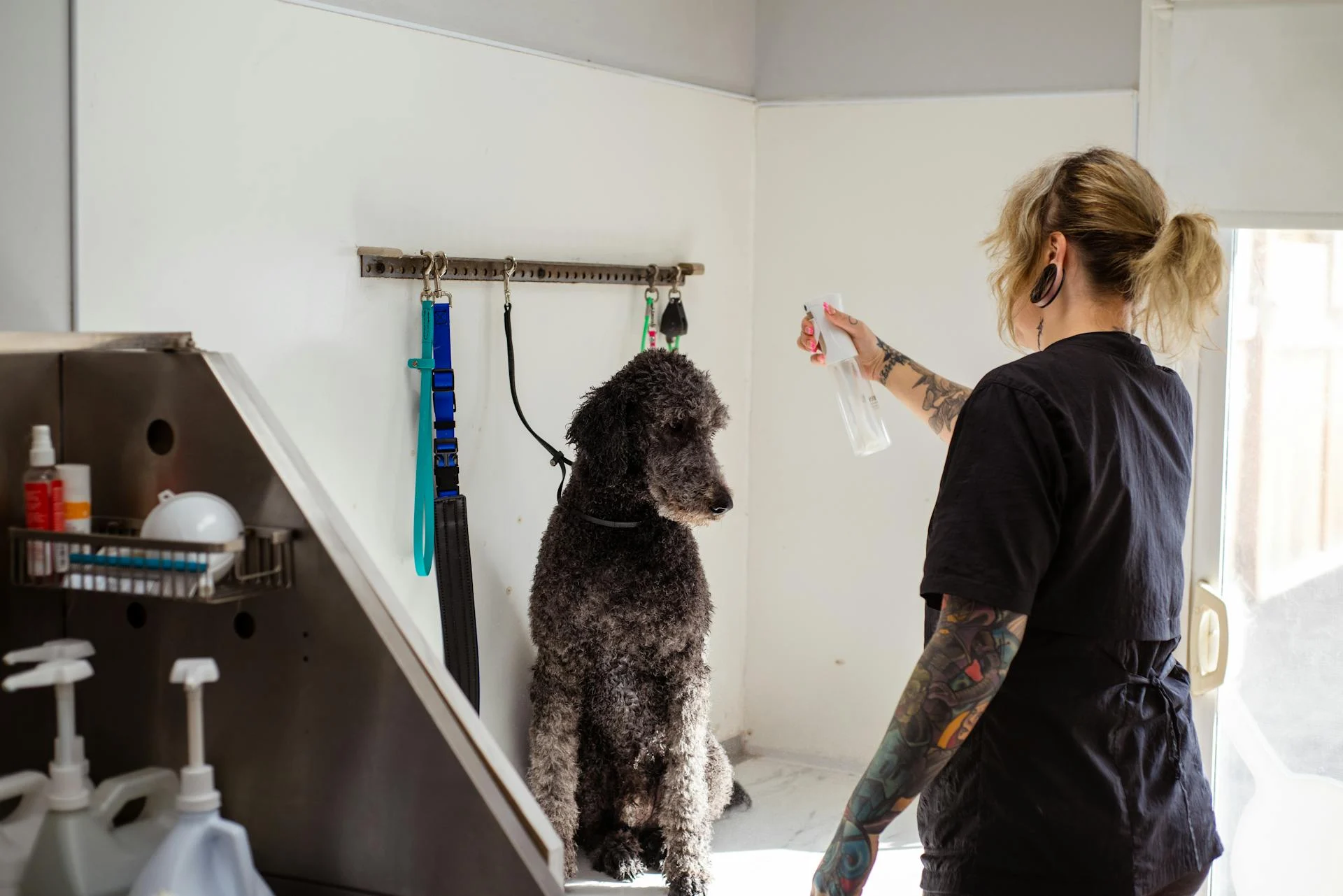
Regular nail trims and dental care are also essential for a Peekapoo's health. Brushing their teeth daily and trimming their nails as needed will help prevent dental disease and decay.
Here's a summary of a Peekapoo's grooming needs:
A Peekapoo's diet should be carefully managed to prevent obesity and ensure they receive the nutrients they need. Feeding them high-quality food in controlled portions will help keep them healthy and happy.
By following these care tips, you can help keep your Peekapoo happy and healthy.
They Are Brachycephalic
Peekapoos are considered brachycephalic dogs, which means they have short heads and flat muzzles. This can lead to smaller-than-average breathing passages.
Their Pekingese parents have very short noses, while their Poodle parent has a long one, so the type of nose your pup has will depend on what genes it gets.
It's not uncommon for Peekapoos to have breathing difficulties when they get over-excited or during hot weather.
Expected Growth Milestones
As a Peekapoo owner, it's essential to monitor your puppy's growth to ensure they're on the right track to a healthy adulthood.
Peekapoo puppies reach their adult weight and height within their first 12 months.
Their adult weight can range from a tiny 4 pounds to a heftier 20 pounds.
A shoulder height of up to 11 inches is typical for adult Peekapoos.
Regular check-ins with a veterinarian can provide guidance and peace of mind throughout this rapid growth phase.
Training and Behavior
Training a Peekapoo can be a delightful experience, as they are a very intelligent breed that responds well to positive reinforcement training methods.
Positive reinforcement techniques are key to successful Peekapoo training, and this includes verbal praise and lots of treats when they do the right thing. A consistent daily schedule for feeding and potty breaks can help avoid accidents and create routine.
Establishing early house rules is vital for successful Peekapoo potty training, and overcoming stubbornness is a must to prevent unwanted behavior. With patience, consistency, and positive reinforcement, you can ensure a well-behaved and emotionally secure companion.
Here are some effective strategies for common challenges in training a Peekapoo:
Training
Training a Peekapoo requires patience, consistency, and positive reinforcement. They are highly intelligent and sensitive dogs that respond well to rewards and praise.
To establish a routine, create a consistent daily schedule for feeding and potty breaks to avoid accidents. This will help your Peekapoo learn and thrive.
Positive reinforcement training methods work best for Peekapoos, as they are highly motivated by treats and praise. Use verbal praise and lots of treats when they do the right thing to encourage good behavior.
Crate training is recommended for potty training and keeping your Peekapoo out of trouble. By establishing early house rules, you can overcome stubbornness and ensure successful potty training.
Here are some effective strategies for common challenges in training a Peekapoo:
Remember, never get angry at your Peekapoo if they have an accident – they are learning and will not want to learn any more if you're yelling at them.
Socializing
Socializing is a crucial part of a Peekapoo's development, especially when it comes to interacting with strangers.
The Peekapoo can be very wary of those they don’t know, leading to a lot of barking when they meet new people. This is because they need to learn that they don’t need to be scared or protect their family.
To combat this, socialization should happen from a young age, introducing them to new places, sights, sounds, smells, people, and other animals. The more they experience, the less scared they are likely to be.
If you have other pets at home, socialization is even more important to prevent territorial behavior and ensure a harmonious household.
Family Compatibility
The Peekapoo is a breed that's best suited for adult-only homes. They can be territorial and may not tolerate children, which can lead to issues.
Their small size makes them more prone to injury, and they may not be able to withstand rough play from kids. This is why it's essential to socialize them from a young age and teach children how to interact with them gently.
While they can be loving companions to children if introduced properly, it's crucial to supervise interactions between dogs and young children to prevent any biting or ear or tail pulling. No dog, no matter how friendly, should ever be left unsupervised with a child.
As for other pets, the Peekapoo can get along with them if socialized early on, but this may be difficult. They may become aggressive and combative towards new animals if not properly introduced.
Their small size also means they're not suited for homes with larger dogs, and their guarding nature can make them an issue to have in the home with smaller dogs and other pets. Housing a Peekapoo on their own is often advised.
Health and Concerns
Peekapoos are generally robust and joyful companions, but understanding and addressing certain health issues can ensure they lead happy, fuller lives.
Regular veterinary check-ups and tailored wellness plans can help mitigate potential health concerns in Peekapoos.
Skin sensitivities are a notable health issue in Peekapoos, and owners should be aware of this concern.
Osteoarthritis and other skeletal conditions are also common in Peekapoos, making regular exercise and a balanced diet essential.
Certain eye health issues can affect Peekapoos, so owners should keep an eye out for any signs of trouble.
As with any dog, Peekapoos are prone to health problems inherited from their parent breeds.
The Pekingese and Poodle breeds have been around for a long time, giving us a chance to understand and prepare for these potential illnesses.
Frequently Asked Questions
Do Peekapoos suffer from separation anxiety?
Yes, Peekapoos can suffer from separation anxiety, which may lead to destructive behavior when left alone. This is just one of the characteristics that make Peekapoos such unique and loyal companions.
Do Peekapoo dogs bark a lot?
Yes, both Peekapoos and Shih Tzus are known to be vocal and may bark a fair amount. However, their barking habits and intelligence levels differ, making them unique companions.
Are peekapoos good dogs?
Peekapoos can make great family pets with proper training and socialization, but they may initially be wary of strangers. With the right care, they can grow into well-behaved and loyal companions
Can a Peekapoo be left alone?
Peekapoos don't do well with extended alone time, as they thrive on companionship and may become destructive if neglected. Regular attention and exercise are essential for their well-being
Featured Images: pexels.com
